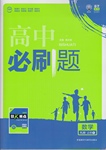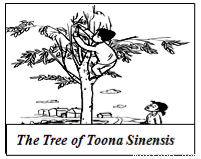题目内容
阅读下面短文,掌握其大意,从每题所给的A、B、C、D四个选项中,选出最佳选项,并在答题卡上将该项涂黑。
A Slice of Generosity
It was Saturday and we decided to take our kids for ________ out. We chose a branch of Pizza Express at the Surbiton Street. We entered the restaurant and sat down ________ an empty table. There was an elderly lady dining alone at the next table. It was clear that the lady had ________ needs. After some time, she finished her eating, sat up and went to the ________ to pay the bill. The waitress tried her bank card several times but couldn’t make it.
Then the waitress turned to her and ________ told the lady that there was something wrong with her bank card and it couldn’t be used at that moment. The lady looked ________ and confused, not knowing what to do. The kind and patient waitress told her not to be nervous and that she could call her ________ for help. Hearing that word, Jeremy, my husband, ________ sat up and told the waiting staff that we would pay for the lady's meal. The waitress smiled to us approvingly and said OK. My husband went to her and handed her our bank card. However, just at that moment, the manager arrived. He learned about the matter and turned to the lady, saying that ________ she couldn’t use her bank card to pay, there was no need to worry because Pizza Express had allowed the restaurant to give away two ________ meals every month and on this occasion, they would like to ________ her with a free meal.
She was extremely ________ and apologetic that she had been unable to pay. We were ________ that the lady had been ________ in such a respectful way and that she was not placed in a difficult and embarrassing position. Then, the manager turned and headed to us. He said that, as we had shown such ________ and helpfulness, he would like to ________ the second free meal that the restaurant was able to offer to us! We were extremely surprised! I have never heard of any chain restaurant behaving in such a ________ way. We were quite impressed with gratitude, expressing our ________ to the manager on behalf of both the lady and us. I made sure that the lady was able to get home OK then we thanked the staff and manager again and left the restaurant.
I think Pizza Express, and in particular the manager of the Surbiton branch, ________ our praise and respect. I told the manager that my younger son also had special needs and that I really ________ the way the restaurant had treated this special case.
Everyone may come across something unpredictable and if we can act just like the manager in the Pizza Express, then the world will become a better one.
1.A. funB. musicC. playD. dinner
2.A. inB. behindC. atD. on
3.A. specialB. ordinaryC. extraordinaryD. particular
4.A. kitchenB. counterC. restaurantD. bank
5.A. proudlyB. impatientlyC. hurriedlyD. politely
6.A. satisfiedB. embarrassedC. pleasedD. unfriendly
7.A. managerB. chefC. husbandD. father
8.A. excitedlyB. graduallyC. immediatelyD. happily
9.A. sinceB. forC. asD. though
10.A. freeB. ordinaryC. regularD. cheap
11.A. provideB. fillC. equipD. furnish
12.A. satisfiedB. disappointedC. gratefulD. sympathetic
13.A. interestedB. worriedC. stressedD. relieved
14.A. criticizedB. treatedC. acceptedD. recognized
15.A. modestyB. curiosityC. generosityD. honesty
16.A. deliverB. showC. sellD. donate
17.A. generousB. sillyC. sensitiveD. selfish
18.A. satisfactionB. disappointment
C. thanksD. regret
19.A. receivesB. deservesC. needsD. wants
20.A. disapprovedB. appreciated
C. forgaveD. disliked
 高中必刷题系列答案
高中必刷题系列答案

